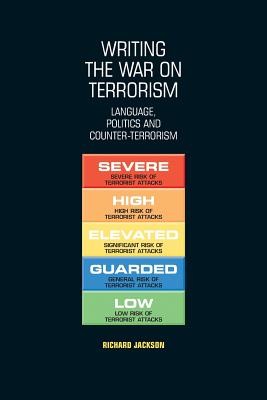
- We will send in 10–14 business days.
- Author: Richard Jackson
- Publisher: Manchester University Press
- ISBN-10: 0719071216
- ISBN-13: 9780719071218
- Format: 15.5 x 23.1 x 2 cm, minkšti viršeliai
- Language: English
- SAVE -10% with code: EXTRA
Reviews
Description
Writing the war on terrorism' examines the public language of the war on terrorism, and the way that rhetoric has been used to justify the global counter-terrorism offensive as a response to 9/11. It discusses how language has been used to deliberately manipulate public anxiety about terrorist threats to gain support for military action, and how the abuse of Iraqi prisoners has been normalised through rhetoric and practice. .
It explains how the war on terrorism has been reproduced and amplified by key social actors and how it has become the dominant political narrative in America today, enjoying widespread bipartisan and popular support. The author argues that the normalisation and institutionalisation of the administration's current counter-terrorism approach is damaging to society's ethical values and to democratic political participation. Lying at the intersection of international relations, American politics, terrorism studies, discourse analysis, communication studies and cultural studies, this book will have genuine interdisciplinary appeal.EXTRA 10 % discount with code: EXTRA
The promotion ends in 23d.07:30:09
The discount code is valid when purchasing from 10 €. Discounts do not stack.
- Author: Richard Jackson
- Publisher: Manchester University Press
- ISBN-10: 0719071216
- ISBN-13: 9780719071218
- Format: 15.5 x 23.1 x 2 cm, minkšti viršeliai
- Language: English English
Writing the war on terrorism' examines the public language of the war on terrorism, and the way that rhetoric has been used to justify the global counter-terrorism offensive as a response to 9/11. It discusses how language has been used to deliberately manipulate public anxiety about terrorist threats to gain support for military action, and how the abuse of Iraqi prisoners has been normalised through rhetoric and practice. .
It explains how the war on terrorism has been reproduced and amplified by key social actors and how it has become the dominant political narrative in America today, enjoying widespread bipartisan and popular support. The author argues that the normalisation and institutionalisation of the administration's current counter-terrorism approach is damaging to society's ethical values and to democratic political participation. Lying at the intersection of international relations, American politics, terrorism studies, discourse analysis, communication studies and cultural studies, this book will have genuine interdisciplinary appeal.

Reviews